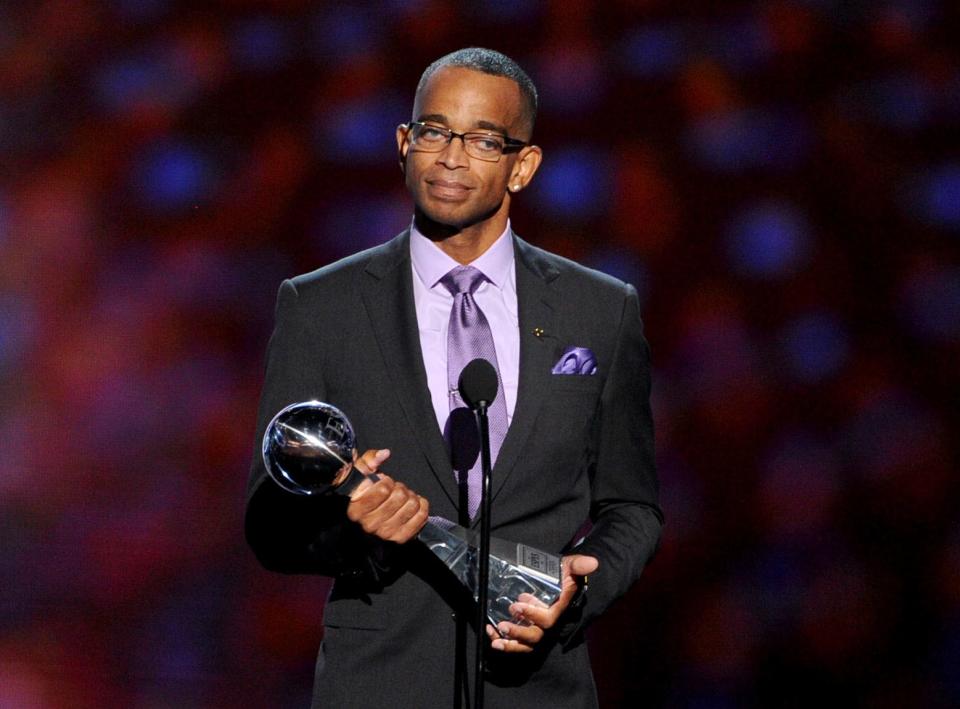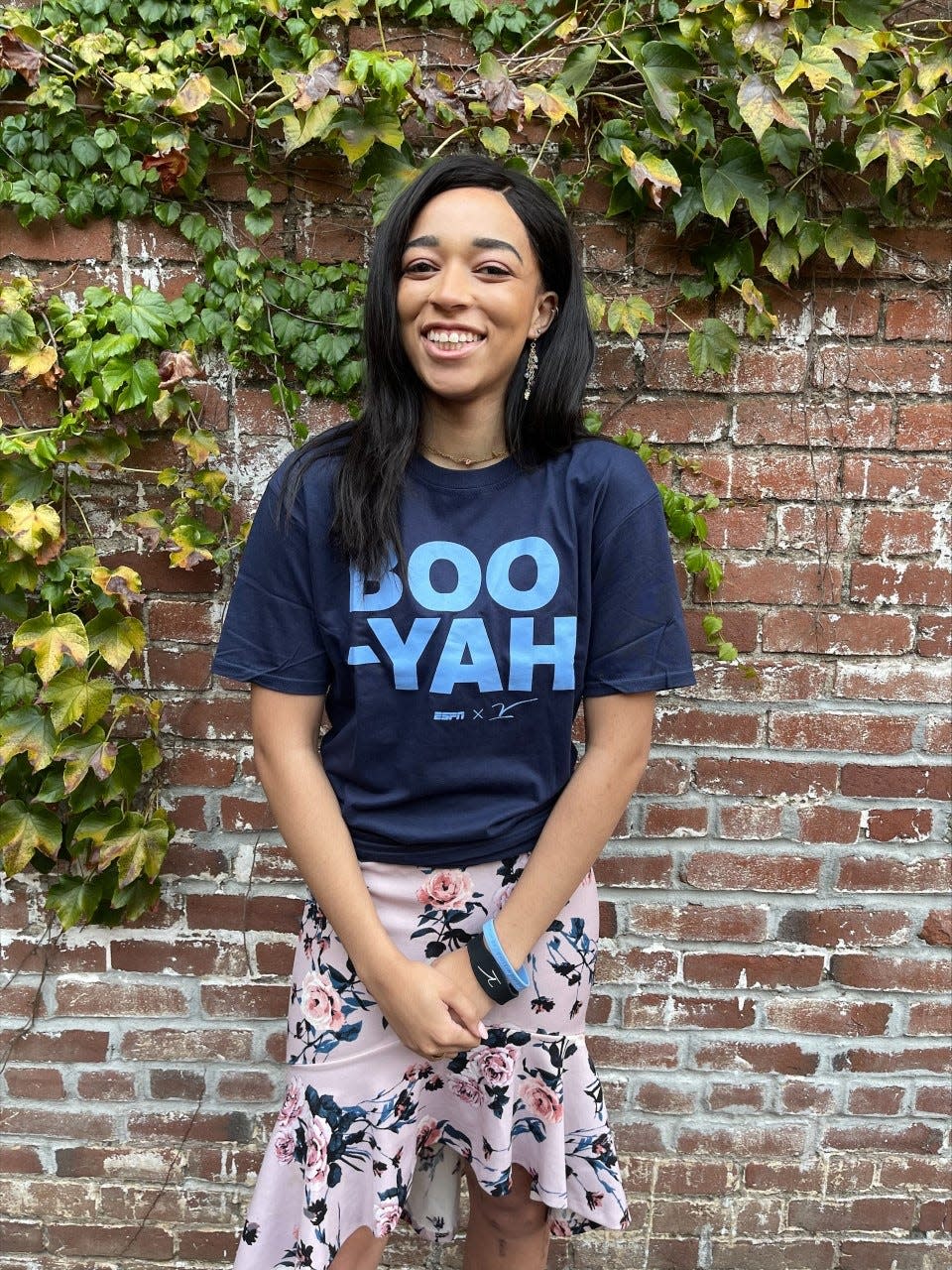My dad, Stuart Scott, died of cancer. But he beat it by how he lived.
Longtime ESPN anchor and sports commentator Stuart Scott was awarded the Jimmy V Award at the 2014 ESPY Awards. It was his last public appearance before his death on Jan. 4, 2015. The V Foundation for Cancer Research and ESPN established the Stuart Scott Memorial Cancer Research Fund in his memory. The fund focuses on improving outcomes for Black Americans and underserved communities disproportionately affected by cancer and funding unrepresented researchers.
At 23 years old, I’m already sick of being in hospitals. I’m unsettled by the familiar murmuring hum of the fluorescent ceiling lights and I dread the stomach-turning response I get whenever I encounter the powdery smell of blue latex-free gloves.
The most offending case in my distaste was the three-year recovery process I underwent after dislocating my kneecap and tearing my hamstring, along with three out of the four ligaments in my left leg while I was competing for my track team in undergrad. Propped up on examination chairs, the updates I received were usually positive, even though I was often only half listening as my mom’s nails poked temporary divots in whichever hand she held. While unpleasant at the time, in retrospect, my family and I have been through worse.
The awful and the familiar
I spent most of my childhood sitting in lobbies, anxiously waiting for news about my dad, Stuart Scott.

Chemotherapy days were the best time to hang out with him. We had a routine that involved sugary boxed cereal and ginger ale with the lights dimmed – so we could say it was like watching a movie in the theater or a TV show in the family room. Those days were unique: awful and familiar.
Opinions in your inbox: Get exclusive access to our columnists and the best of our columns every day
Through admirable yet unattainable discipline, he set out on his mission to work out every time he had chemo. And I often tagged along as he – through grins or gritted teeth – unplugged from his treatment and went to the gym to practice mixed martial arts.
Until one day he faltered.
'The fights' of life
Some days he just couldn’t do it. For years I watched him fight and win, and for months I watched him fight and lose.
Lesson in empathy: Americans came together for Bills' Damar Hamlin. Let's not lose that moment.
A weariness crept into his eyes and a fragility weighed on his shoulders. On those chemo days, I’d press play on the movie knowing we wouldn’t be going to the gym and he’d fall asleep before it was over. And I watched him do that because I knew things were changing. Now, I paid special attention to the parts I thought he’d like most so that when he woke up I could tell him what he missed.
Opinion alerts: Get columns from your favorite columnists + expert analysis on top issues, delivered straight to your device through the USA TODAY app. Don't have the app? Download it for free from your app store.
Over the course of seven years, I saw the battles my dad fought start to change. His fight for himself became a struggle for me and the future he knew he wouldn’t see.
In those months we spent together, I learned what “the fights” of life were. They come in different sizes and to different degrees and are best taken on with good intentions and a strategically curated team approach.
As time passed, I started to recognize when the hopelessness he previously protected me from seeing would flicker across his face.
Even though my dad’s fight ended and I still miss him all the time, I look back on those days with gratitude. Those afternoons when my father felt as though he failed, when we sat in the hospital room, those were the moments we had been fighting so hard for.
If the purpose of my father's fight and the fight of the family to support him was to have small valuable moments together, we were ultimately victorious. The hours my dad and I spent watching movies in the dark was our tiny effort to resist what we couldn’t control – and what we won was time spent well. I hoped my small efforts to share the burden of what he was going through impressed upon him the magnitude of my love.

Sydni Scott, daughter of the late ESPN commentator Stuart Scott, is a Rhodes scholar after graduating as a student-athlete at Columbia University.
You can read diverse opinions from our Board of Contributors and other writers on the Opinion front page, on Twitter @usatodayopinion and in our daily Opinion newsletter. To respond to a column, submit a comment to letters@usatoday.com.
This article originally appeared on USA TODAY: As Stuart Scott battled cancer, what our family won in my dad's fight

